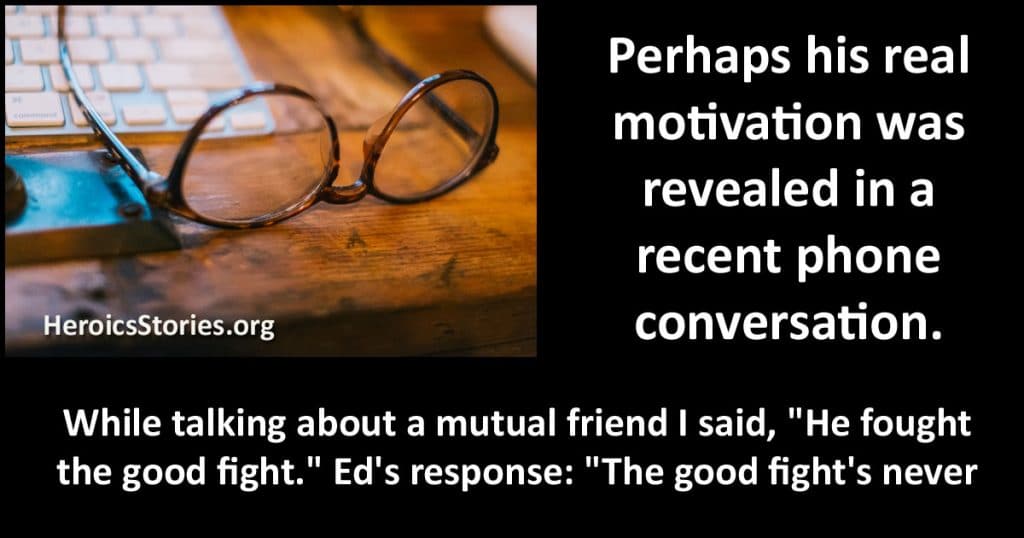by Tom Geller
San Francisco, California, USA

I was a student at the University of Cincinnati’s conservatory, looking for something to do outside of musical harmony classes. Somehow, I found myself at a printer’s office across the river in Northern Kentucky, pasting in line changes for Ed’s small Cincinnati newspaper. It wasn’t until I’d been there a few months that I realized how much Ed changed the world around him — and altered my life in the process.
Ed started the paper because the local daily papers of the time turned a blind eye to problems in local government, gave little space to issues affecting the city’s sizable Black community, and only mentioned gay people in relation to scandal. Ed’s paper was a small, photocopied, 16-page monthly, distributed for free in bars. For those who read it, however, it was a godsend.
He constantly encouraged “non-writers” to write if they had a story to tell. Some of them were (to put it charitably) mediocre writers. He worked with them until the words better expressed their ideas. When I turned in a story about an unpopular topic, Ed didn’t worry about its repercussions. He only asked, “Is it true?” and “Does it affect people?” Satisfied by my answers, he ran the story.
What drove Ed? It wasn’t fame, for the paper’s limited resources kept him obscure. It wasn’t money, for he ran the paper at a deficit its entire life of eight years. Indeed, more than once I remember him having to choose between paying his rent or paying the printer. (He always found a way to do both.) I believe the paper gave him strength to go on in the face of personal difficulties, including the death of his spouse and 12 years of HIV infection.
Perhaps his real motivation was revealed in a recent phone conversation. While talking about a mutual friend I said, “He fought the good fight.” Ed’s response: “The good fight’s never over.” Ed eventually went on to write for one of the city’s daily papers, and then worked for the city government.
I don’t believe that events make heroes, I believe heroes are the result of enduring goodness. Ed’s enduring goodness proved the value of constancy, and spoke volumes about working for good causes for their own sake. He showed how one person working tirelessly could help a population to overcome its problems. Ed demonstrated that the pay such work provides is greater than any twice-a-month envelope can deliver. Above all, his example showed me the necessity of making my own contributions to causes I believe in.
Podcast: Play in new window | Download (Duration: 3:57 — 3.7MB)

